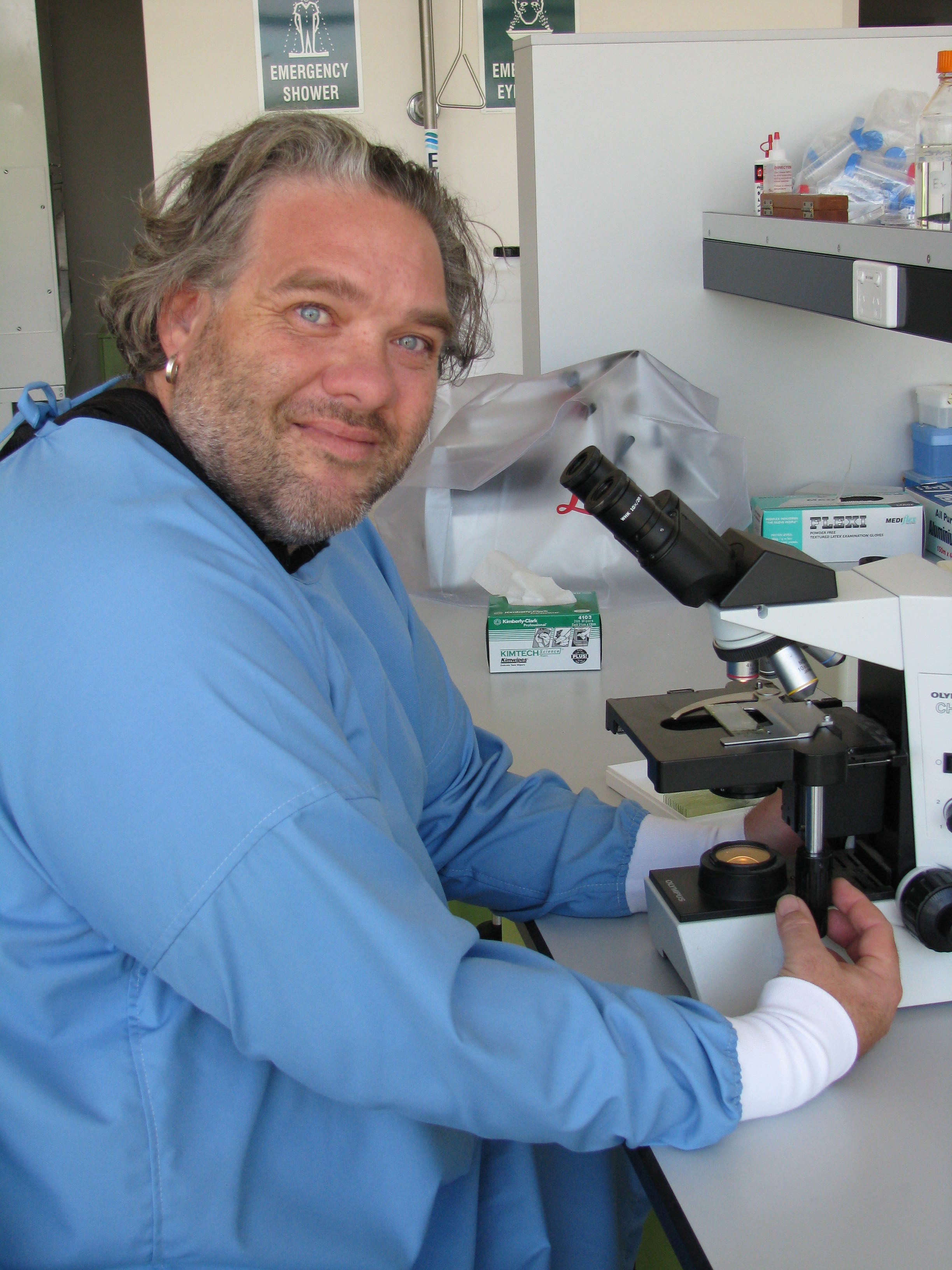Dr Adam Hamlin
Associate Professor in Biomedical Science (Neuroscience) , Neuroscience - School of Science and Technology

Biography
Dr Hamlin joined the School of Science and Technology in 2014 as a Senior Lecturer in Biomedical Science (Neuroscience) moving from The School of Biomedical Sciences at Charles Sturt University where he was a Lecturer in Anatomy and Physiology. Prior to beginning his academic career in 2011 Dr Hamlin held a post-doctoral position at the Queensland Brain Institute, The University of Queensland where he was an NH&MRC Fellow investigating mechanisms of neurodegeneration in diseases such as Alzheimer's disease.
Previously, he was a postdoctoral Fellow at The School of Psychology, The University of New South Wales where he was investigating the neural mechanisms that underpin relapse to drug seeking behaviours. Dr Hamlin gained his BSc (Honours) degree from the University of Queensland in 1999 and completed his PhD (Medicine) at The Pain Management Research Institute, The University of Sydney in 2006 examining the functional neuroanatomy of morphine-induced abstinence, tolerance and sensitisation.
Qualifications
BSSc (Psych), BSc (Hons), PhD (Medicine)
Teaching Areas
A/Prof Hamlin is passionate about science and science communication and takes the responsibility of educating very seriously. His teaching philosophy is to effectively communicate not just what we know but how we know with a particular emphasis on critical analysis of data.
It is A/Prof Hamlin's goal to develop the ability in his students to critically analyse information and formulate independent and valid hypotheses. It is his belief the making of a successful science student is not just knowing the facts but understanding how these conclusions were drawn by the examination of the experimental design and critical analysis of the results. He believes that education is a process that involves two sets of participants each playing a different role: Teachers who communicate their knowledge to students and students who absorb knowledge from teachers. However, education is also about students imparting knowledge to their teachers by challenging the teacher's assumptions through questioning. This is something that he encourages and he finds a particularly rewarding aspect of teaching.
A/Prof Hamlin is co-ordinator for the Bachelor of Science (Neuroscience) NEUR231/531 Neurobiology, NEUR232/532 Neuroanatomy, & NEUR233/533 Neurobiology II. In addition A/Prof Hamlin teaches the neuroscience components of the 1st and 2nd year Joint Medical Program, Biomedical Science and Pharmacy degrees.
Research Interests
The focus of my research combines sophisticated functional neuroanatomical analysis with behaviour, to elucidate the neurons, circuitry and chemical underpinnings of specific behaviours. Using a functional neuroanatomical approach in combination with behavioural designs A/Prof Hamlin has published several key papers relating to the functional significance of discrete neuronal populations and their circuitry. To date, this research has resulted in 37 research publications in high ranking international journals including, PLoS One, Journal of Neuroscience, Neurobiology of Learning and Memory, Behavioural Neuroscience, European Journal of Neuroscience, and Neuroimage. These research articles have been cited over 1800 times (h index =22).
A/Prof Hamlin has been invited to speak at several seminar series and symposia including; Neuroscience Seminar Series, Melbourne University; Translational Research 2010; 3rd Brain Plasticity Symposium: Circuits, Synapses and Behaviour; The Neuroscience Seminar Series, The University of Newcastle; Brain Sciences University of New South Wales Symposium; Australian Learning Group Christmas Workshop; Kolling Institute Seminar Series; and the XI Annual Royal North Shore Scientific Meeting as well as an invitation to speak at the inaugural Gene Regulation in Brain symposium. A/Prof Hamlin is a highly sought after public lecturer, having conducted lectures at libraries, bookshops, community groups, and University of the 3rd Age and have performed many television, radio and newspaper interviews. A/Prof Hamlin currently reviews for a number of international journals including: Neuroscience Letters, Polish Journal of Pharmacology, Brain Research, British Journal of Pharmacology, and Spinal Cord and is currently an NHMRC grant reviewer.
Current Research Projects
- The effects of Chronic Early Life stress and antideprassants on the diversity of the gut microbiome.
- Development of novel antidepressant and anxiolytic drugs
- Chronic early life stress’ association with impulsivity
- Link between Type 2 diabetes and Alzheimer's disease
- Evolution of intelligence - cognitive complexity of birds
- Behavioural and neuroanatomical correlates of animal welfare
- Neuropsychiatric disorders associated with streptococcal infection
Research Students
- Lucy Farrow (PhD)
- Rukshan Ahamed Mohamed Rafeek (PhD)
- Mitchell Turner (PhD)
- Sajeevan Vanatheva (PhD)
- Julia Page (Masters of Science Neuroscience)
- Ali Sadr (Masters of Science Neuroscience)
- Destiny Powell (Masters of Science Neuroscience)
- Peta Taylor (Masters of Science Neuroscience)
- Riya Tharpa (BSc Hons)
- Sam Webster (BSc Hons)
- Sharanya Pradeep (BSc Hons)
Memberships
- Brain Behaviour Research Group
- Society for Neuroscience
- Australian Neuroscience Society
- Australian and New Zealand Laboratory Animal Association
External Profiles
Further Information
Chair University of New England Animal Ethics Committee

